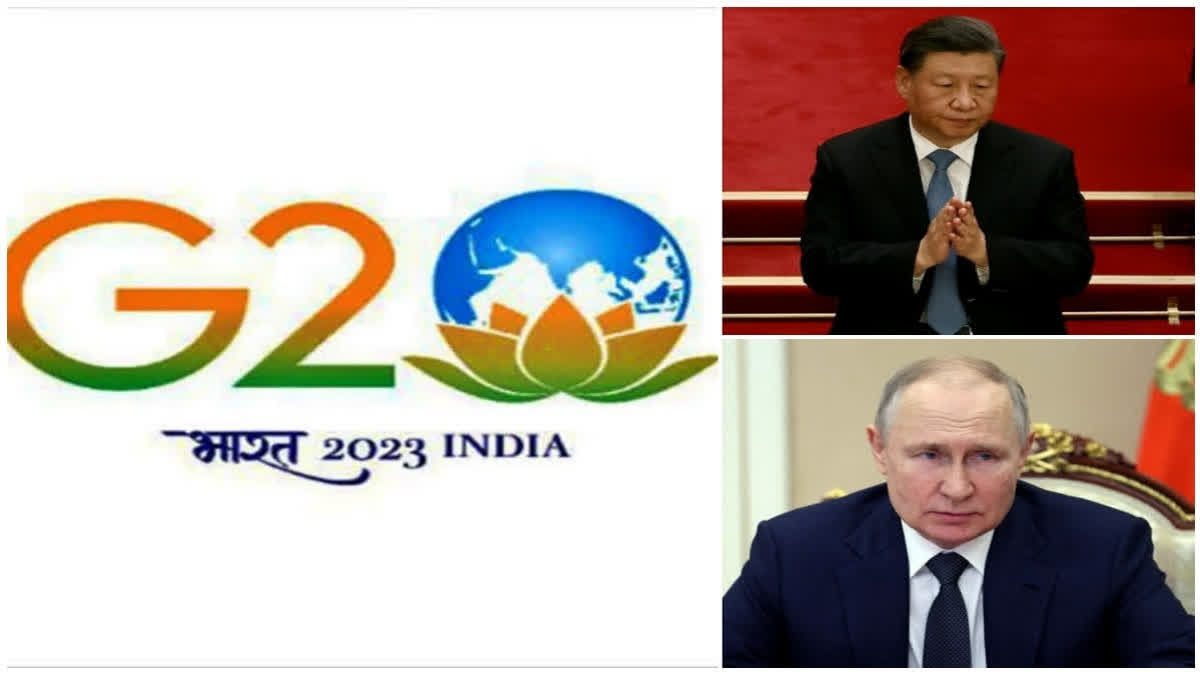New Delhi: Though the Group of 20 (G20) is an intergovernmental forum that seeks to address issues related to the global economy like international financial stability, climate change mitigation and sustainable development, the conspicuous absence of Russia’s Vladimir Putin and China’s Xi Jinping from this year’s Summit in New Delhi on September 9-10 may lead to geopolitical ramifications as well.
Their decision to skip the Summit speaks volumes about the evolving dynamics in the Indo-Pacific and the ongoing conflict in Ukraine, heralding significant shifts in the global balance of power. For years, the G20 had been a platform for dialogue and cooperation among the world’s leading economies. However, the rise of China’s hegemony in the Indo-Pacific and Russia's belligerence in Ukraine had strained these international bonds to their breaking point.
Let’s take the absence of Russian President Putin first. During a telephonic conversation with Prime Minister Narendra Modi last month, Putin conveyed his inability to attend the G20 Summit and said that Russia would be represented by its Foreign Minister Sergey Lavrov instead.
Prior to the telephonic conversation between the two leaders, Kremlin spokesperson Dmitry Peskov had said that Putin would not be able to attend the Summit as “now he really has a busy schedule”. “And of course, the main focus is still the military operation (in Ukraine). So direct travel is not on the agenda right now,” Peskov said.
According to Swasti Rao, Associate Fellow at the Manohar Parrikar Institute of Defence Studies and Analyses, Putin skipping the Summit is a reflection of Russia’s isolation internationally because of its war with Ukraine.
“Look, Putin did not attend the G20 Summit at Bali in Indonesia last year too,” Rao told ETV Bharat. “He also did not attend the BRICS (Brazil, Russia, India, China, South Africa) Summit in Johannesburg last month.”
Though Putin did not attend the BRICS Summit physically, he addressed it virtually. South Africa is a signatory to the International Criminal Court (ICC) where a case has been registered against Putin for the war in Ukraine. By not attending the BRICS Summit in person, Putin saved South Africa the embarrassment of taking any action against him.
India, though, is not a signatory to the ICC. If Putin had attended the G20 Summit in New Delhi, it could have given India the opportunity to showcase its strong partnership with Russia.
“You should read between the lines here,” Rao said. “It shows international isolation of Russia.” She also referred to the international summit on the war in Ukraine held by Saudi Arabia in the Red Sea port city of Jeddah in August this year. Though Saudi Arabia has close ties with Russia, Moscow was not invited to that summit. However, Ukraine was. India was represented by National Security Advisor Ajit Doval.
“Even in countries that are not directly affected by the war, there is a growing sense of unease,” Rao said while referring to Russia pulling out of the Black Sea Grain Initiative.
In July last year, the UN helped broker a lifesaving deal between Ukraine, Turkey and Russia that enabled Ukraine to resume shipping millions of tons of desperately needed grain exports through the international waters of the Black Sea. The deal unlocked millions of tons of desperately needed grain and other foods that would otherwise be stuck in Ukraine. The Black Sea Grain Initiative helps people in need across the globe, especially in Africa, by directly delivering desperately needed grains to lower-income countries and bringing down food prices.
